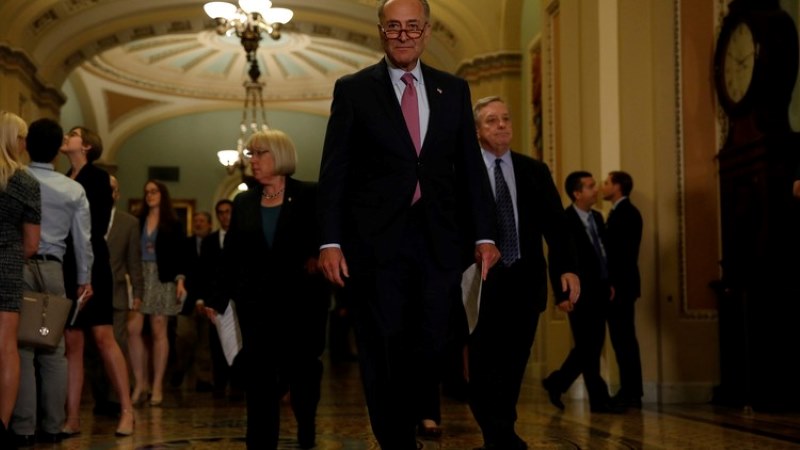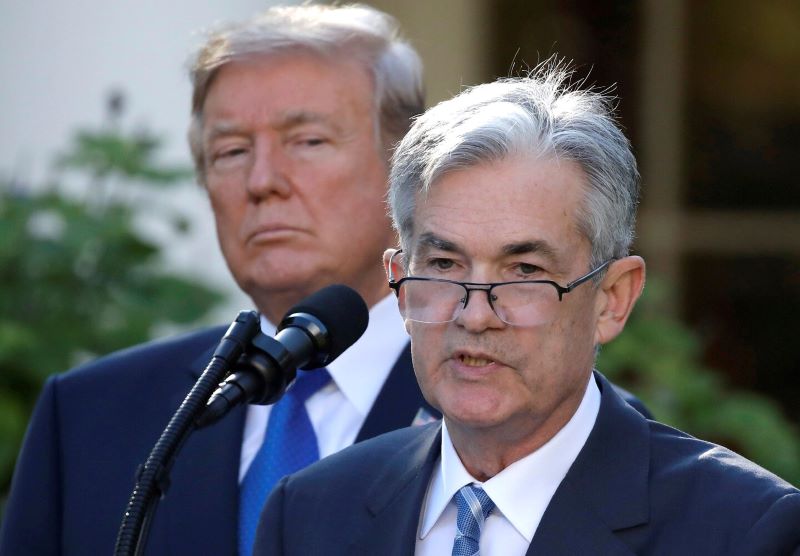Economy
Trump Increases Pressure on Federal Reserve for Interest Rate Cuts
President Donald Trump is increasing his pressure on the Federal Reserve to lower interest rates, accusing Fed Chair Jerome H. Powell of “playing politics” and acting too slowly in response to economic shifts. The President has called for more aggressive action, criticizing Powell’s hesitation despite growing market volatility.
Fed’s Reluctance to Lower Rates Soon
Despite the economic turbulence and Trump’s ongoing global trade conflict, the Federal Reserve signals that it is unlikely to reduce interest rates in the near future. Investors in futures markets have predicted as many as five rate cuts later this year, but the Fed prefers to wait for more definitive signs of economic weakness.
Fed’s Focus on Tangible Evidence
Richard Clarida, a former Fed vice-chair, believes the central bank’s cautious approach stems from its reliance on tangible evidence rather than forecasts or models. “They’re primarily focused on tangible evidence,” Clarida stated, suggesting that the Fed wants more concrete signs before taking action.
Trade War, Inflation, and Market Instability
Trump’s tariffs on U.S. trade partners have led to sharp declines in stock indices, with notable market instability following tariff announcements. However, Fed officials remain confident that patience is necessary. They are grappling with balancing the effects of a trade war and persistently high inflation, which remains well above the Fed’s 2 percent target.

Republicans Call for Tariff Negotiations Amid Economic Uncertainty
Republicans lawmakers are urging the Trump administration to negotiate deals to reduce tariffs, seeking…
Inflation and Unemployment A Delicate Balancing Act
The Fed faces a dilemma: a trade war may push inflation higher, typically necessitating rate hikes, but it could also harm economic growth and employment, which would usually warrant rate cuts. The central bank may eventually have to choose between addressing inflation or supporting employment.
Powell and Kugler Emphasize Inflation Concerns
Fed Chair Jerome Powell has stressed that controlling inflation is crucial. “Our duty is to anchor long-term inflation expectations,” he said. Similarly, Fed Governor Adriana Kugler pointed out that trade policy directly affects inflation more than economic growth. The uncertainty surrounding tariffs could impact consumer behavior and growth, especially with consumers advancing purchases ahead of new tariffs.
Uncertainty Around the Trade War and Rate Cuts
There is considerable uncertainty regarding the future of the trade war, with conflicting messages from Trump and his advisers. Some argue that the tariffs are leverage to secure trade concessions, while others suggest they may become permanent. Economists believe the Fed is hesitant to cut rates prematurely if tariffs are reduced or negotiated away.
Stable Financial Markets Reduces Need for Immediate Action
Despite market volatility, the financial system remains stable, and credit markets are functioning normally. The Fed is unlikely to act unless a sudden financial crisis, such as the collapse of a large bank, occurs. In such a case, the central bank would act quickly to prevent further instability.


